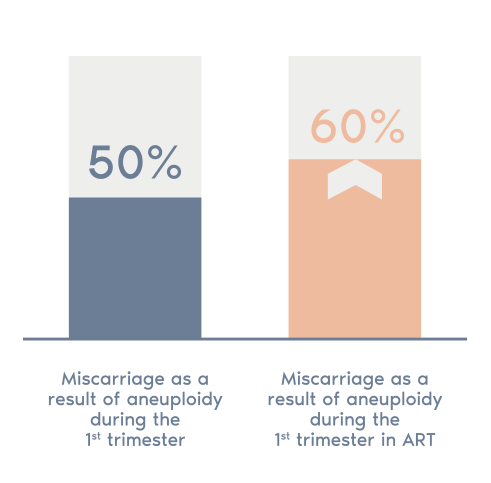- POC by Next Generation Sequencing (NGS)
What is POC testing?
Our portfolio of POC tests analyse whether a miscarriage may have been caused by a
chromosomal abnormality.
- In around 50% of first trimester miscarriages a chromosome abnormality is present.
- This figure rises to 60% in cases of assisted reproductive treatment and further increases with age.
- The POC test analyses the chromosomes and is able to identify alterations to the number of chromosomes (aneuploidies) as well as losses and gains of chromosome fragments.
- POC by NGS allows the identification of some ploidy alterations (loss or gain of a complete set or sets of chromosomes) and determines the origin of the tissue under study (whether it is foetal or maternal).
How is the POC test performed?
Methodology

**It is essential that the blood sample is collected before the evacuation of the foetal tissue takes place. If pharmacological treatment is being used for the evacuation, the blood should be collected prior to taking the medication.
POC Methodology
For POC by NGS and POC by CMA

















